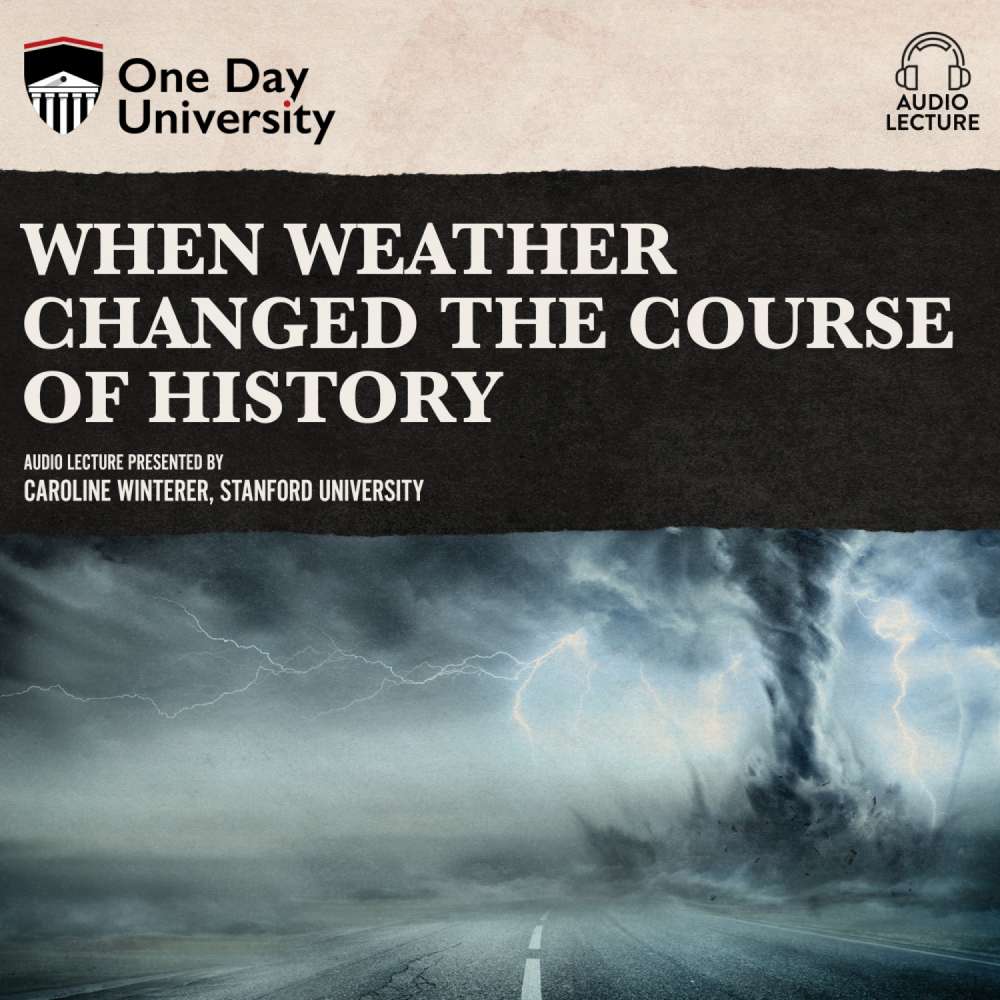
When Weather Changed the Course of History
Caroline Winterer
Unabridged
55 minutes
Unabridged
55 minutes
Vom Herausgeber
One Day University presents a series of audio lectures recorded in real-time from some of the top minds in the United States. Given by award-winning professors and experts in their field, these recorded lectures dive deep into the worlds of religion, government, literature, and social justice.
Weather and climate have been shaping human history for thousands of years. Blizzards, hurricanes, droughts, dust storms, and floods: all of them have been turning points. Weather disasters seem so much bigger than we are, but they're accurate barometers for telling us about what we value as human beings. This course will examine some of these major turning points (some of them based on controversial evidence!), from the ancient world, to Napoleon's invasion of Russia, to the Dust Bowl, to Hurricane Katrina. How have weather disasters shaped human history, and what can this tell us about how we think about climate change today?
Imprint
Release date
27.04.2021
Auch enthalten in
Reviews
No reviews yet
Start by writing your own review.







